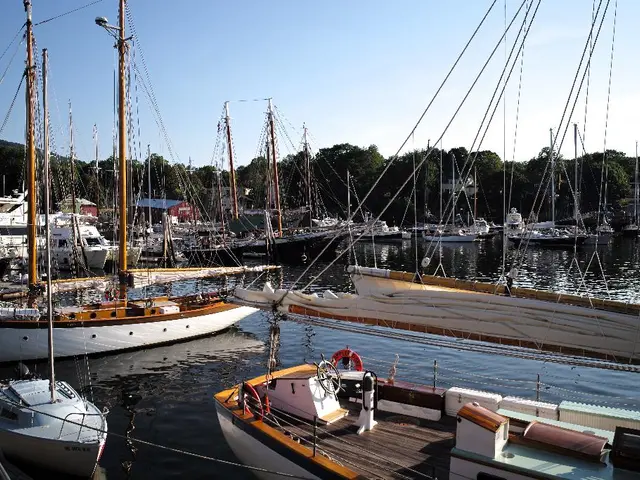Eu member states, specifically the Baltics, advocate for a greater EU budget, while Germany expresses reservations, deeming the proposed figure as overly generous.
In a recent meeting of German and Baltic finance ministers in Vilnius, the parties discussed the European Commission's proposed budget for 2028-2034, worth nearly EUR 2 trillion. The Baltic states, including Latvia, Estonia, and Lithuania, have expressed support for increasing the budget, while Germany's Vice Chancellor and Finance Minister, Lars Klingbeil, has expressed reservations.
The Baltic finance ministers support the draft budget due to its focus on strengthening European competitiveness, military capacity, and significant investment in cohesion, rural development, and climate protection. These areas are vital for the Baltic countries' economic and security interests. They favour a larger, more flexible budget that can support reforms and investments tailored to national and regional needs.
However, Klingbeil described the proposal as "too generous," likely due to concerns about the overall size of the budget, which implies higher EU-level spending and potentially greater financial contributions from member states. Germany tends to prioritize fiscal restraint and may be cautious about expanding EU spending, given the ambitions for new own resources and the complexity of financing mechanisms like the recovery fund repayments and new tax initiatives on emissions and multinational corporations.
The Latvian Finance Minister, Arvils Aseradens, emphasized the need for a simpler and more flexible EU budget, maintaining funding for cohesion and agriculture policies, and providing targeted support to countries affected by the war in Ukraine. Aseradens also invited the Estonian and Lithuanian ministers to participate in the Baltic Capital Markets Conference in Riga on November 27, where discussions will focus on the development of capital markets in the region, sustainable financing, growing defense needs, budget deficit challenges, private sector involvement, and the integration of the Baltic capital markets.
The Baltic ministers suggested the EU budget should be at least as large as proposed by the Commission or even larger. In contrast, Klingbeil stated that Germany cannot support the proposal as it stands. Commission President Ursula von der Leyen has called the proposal "the most ambitious ever proposed." Further discussions to reach a common decision among all EU member states will not be easy.
The Baltic states and Germany are considered close allies and reliable partners in strengthening security on Europe's eastern flank. The German presence in Lithuania is expected to grow to 5,000 Bundeswehr personnel by 2027. Despite their differing positions on the size of the EU budget, both parties share a common goal of ensuring a secure and prosperous Europe.
[1] European Commission proposal for the next long-term EU budget (2028-2034) - European Commission [2] The European Union's budget: what is it and how is it spent? - European Parliament [3] Germany's stance on the EU budget: A balancing act between fiscal discipline and solidarity - Carnegie Europe [4] National and Regional Partnership Plans - European Commission [5] The recovery and resilience facility - European Commission
- The proposed European Commission budget for 2028-2034, aiming to strengthen Europe's competitiveness, military capacity, and infrastructure development, is of significant interest to the Baltic states due to its impact on their economic and security concerns.
- Germany's Vice Chancellor and Finance Minister, Lars Klingbeil, has expressed reservations about the proposed EU budget, citing concerns over its size and potential implications for member states' financial contributions.
- Despite their differing opinions on the size of the EU budget, both the Baltic states and Germany share a common goal of ensuring a secure and prosperous Europe, with Germany planning to increase its military presence in Lithuania by 2027.




